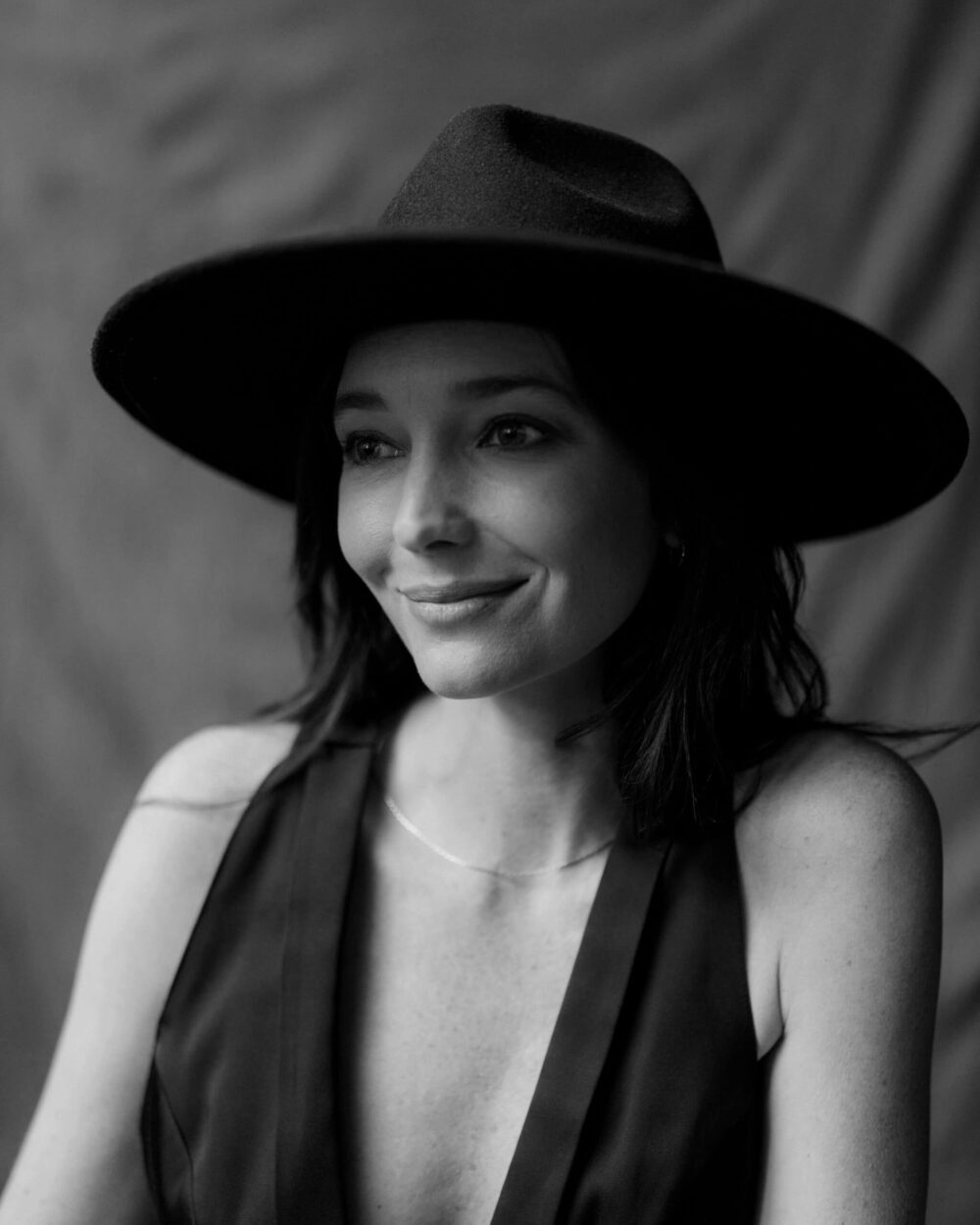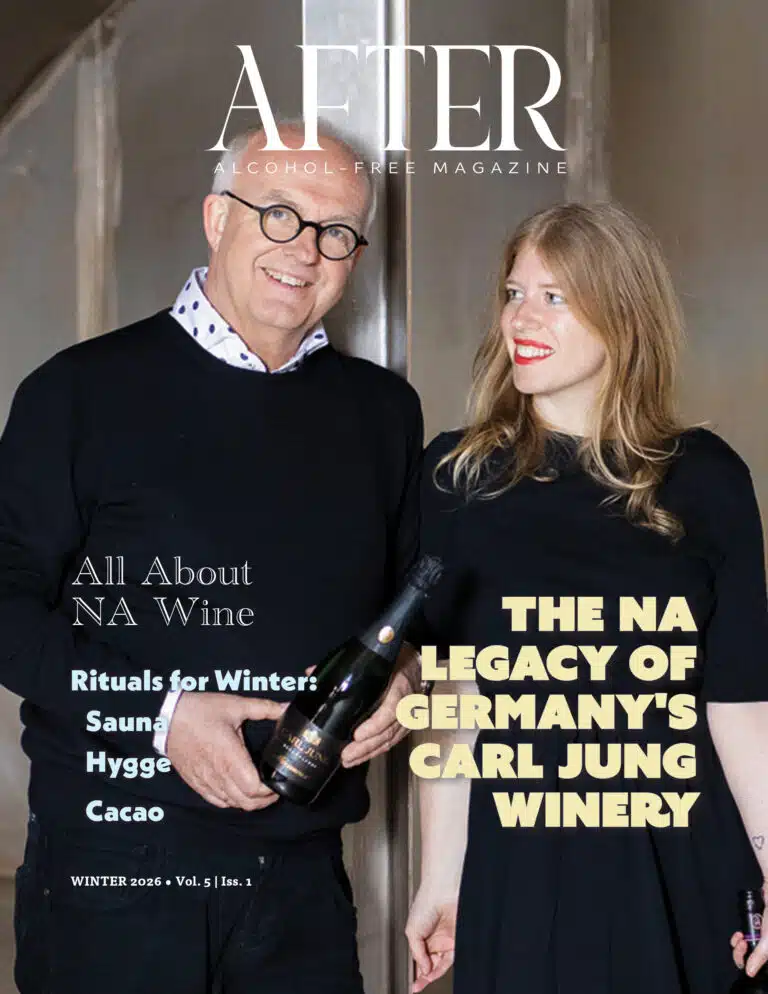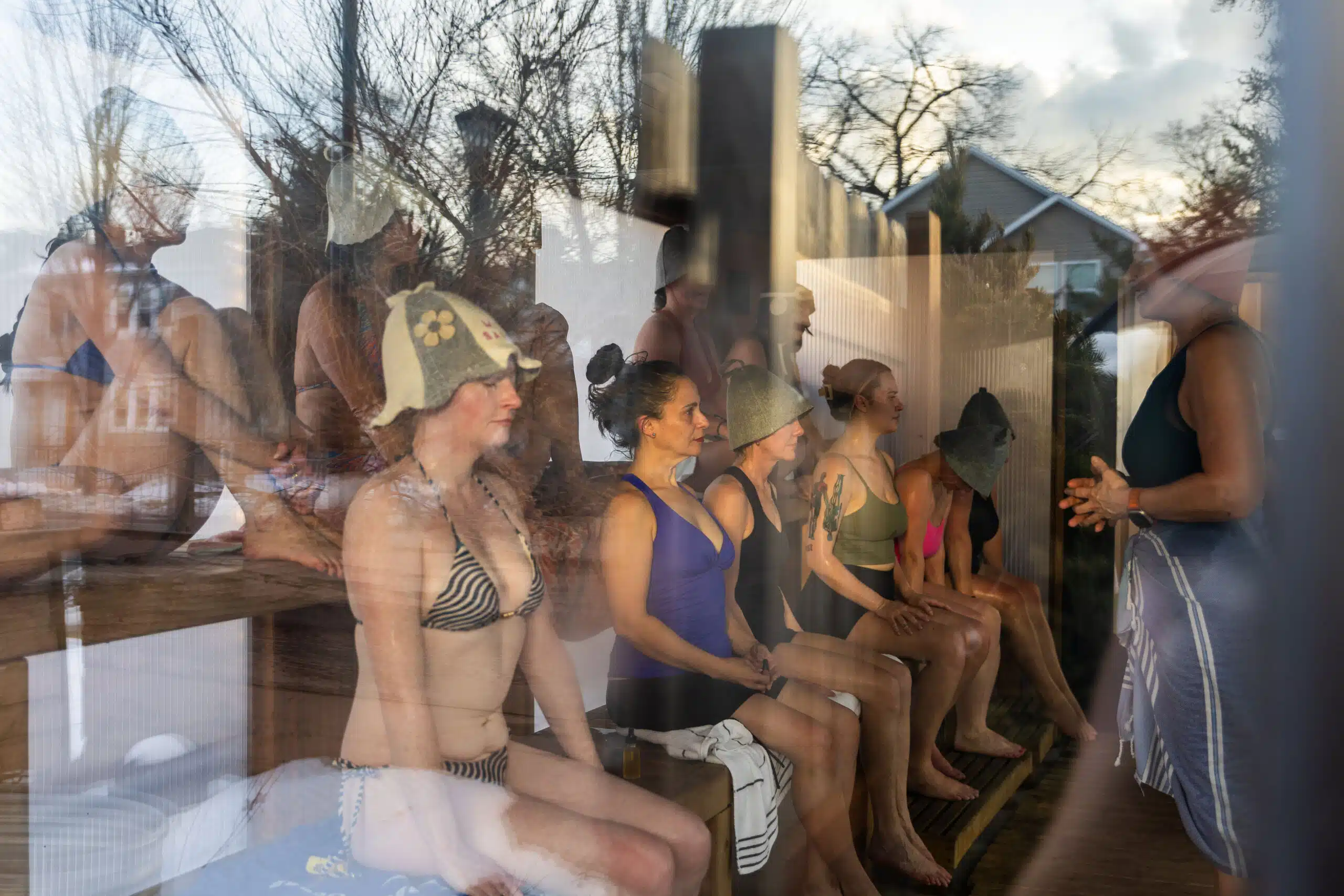Throughout my school years and teens I was, by all definitions, what you would call a good girl. I wanted to do the right thing, always molding and twisting myself into whatever shape might avoid disappointed faces. I placed the regard of others—teachers, parents, and perfect strangers—on a pedestal way above myself and did my best to please them all while balancing everything with grace and beauty. As most good girls do, I ran into a new set of challenges when I entered the real—read: adult—world at nineteen and discovered that there was an entirely new set of impossible standards to uphold. I was quickly carried away by the deluge of rubbish we are sold about what it means to be a successful and sophisticated woman. And like most of us, I believed all of it. The caricature of the “ideal woman” was something I held onto as an achievable standard for nearly twenty years.
As women, we are ambushed. Every roadside billboard, television commercial, music video, and rom-com protagonist is a constant reminder of what we should be chasing: perfection. This woman is strong in her demeanor but soft and supple in her bosom. She never ages. (And if she fails to retain her youthful appearance she embraces the “wise crone” archetype and humbly steps aside for the younger, fairer maidens to take her place.) She has bold ideas and business plans, her dedication to the grind only surpassed by her dedication to her children. She wears designer heels and makes it to yoga four days a week in matching separates. She’s never too tired to make an appearance or put on a show and her libido never waivers, even during her luteal phase. Her tone is confident but never threatening, her social calendar is booked, and a crisp, cold glass of “whatever she’s having” is her evergreen accessory.
Around the age of nineteen, at the start of my own quest for supreme womanhood, I, not coincidentally, began a love affair with alcohol. More specifically, I fell in love with alcohol’s ability to remove the unpleasant thoughts and crippling self-doubt residing in my mind. I discovered that this magical potion offered a form of teleportation, a quick ticket out of all the negative emotions I wasn’t keen on feeling. Don’t like it here? Drink. Suddenly everything heavy feels lighter. The problem with teleportation (both alcohol-induced and otherwise, I presume) is that when accessed too often—when it shifts from a brief mental vacation to a necessary escape—a woman may find herself detached from the life that is actually in front of her and unable to be anywhere at all. She becomes trapped and lifeless. Like a doll in a box on a shelf, she comes to life only for playtime, and even that is make-believe.
During these years, I bounced from metropolis to metropolis, relationship to relationship, happy hour to happy hour, workshopping my version of the ideal woman. I drank vodka and club soda during my fashion model days in New York to avoid extra calories, sipped peated scotch and rare bourbons with the older men I dated to appear more mature and discerning, and favored funky natural wines during my stint in L.A. as a struggling actor and aspiring writer. The booze became more than just an extension of whatever personality I was peddling at the time. It became my only salve to the toll that upholding an impossible standard was taking on me. Alcohol became the “off switch” that I used at the slightest inconvenience. For a time, the drink offered the illusion of freedom. The parts of me that didn’t make the cut were washed away under the acidity of fermented abandon. It was like playing adult dress-up. Having a drink in my hand was an instant equalizer in challenging rooms. When everyone seemed cooler or smarter or richer than me, alcohol was one thing we had in common. Stiff and cold social interactions were warmed up and shaken loose after three margaritas. If push came to shove I could dangle like a wind-up toy at the bar and catch the gaze of someone who would feed my ego and my current top-shelf fixation. Perhaps, marketing campaigns for booze are targeted at women because of our unique vulnerability: the reality that we’re always in danger and encouraged to show no fear. Dress up, show up, be a good time, drink like a man, but stay soft and malleable.
Over time, this crutch I was leaning on for moral support or manufactured courage or lowered inhibitions morphed into a toxic coping mechanism that was threatening my sanity. It started creeping into more of my daylight hours while robbing my nights of peaceful sleep. The embarrassing drunken flubs grew more frequent and the consequences of them more serious. I was reckless and unpredictable—two qualities that for so long seemed glamorous and sexy but were now responsible for more than just a mural of bruises on my tired and puffy frame.
I was losing touch. I had created so many different versions of myself, twisted myself into so many counterfeit productions, and avoided so many uncomfortable truths that I had trouble returning “home,” if I even remembered what that meant. Who am I? Where is she? My little ethanol-powered reality-suspending relief machine had flown me too far from the earth.
In late February of 2020, at the end of my rope and all out of places to run, I answered a surprising call coming from within. A voice, kind yet authoritative, spoke up in the morning hours of February 26th, telling me, “You’re done,” and I didn’t resist. Something revealed itself with so much undeniable clarity that morning that any decision other than quitting drinking for good was simply not an option. I could continue with the status quo, using alcohol as a band-aid on the bullet hole of my discontentment, or I could get sober and find out what I was capable of doing in this life. There was no other option.
I didn’t make a big fuss about it. Ironically, my sobriety was quite calm and quiet in those early months—a far cry from the cacophony of fire alarms and scream-talking that was my drinking career. I read books, wrote poetry, planted a garden, and slept…a lot. What began was a process of unlearning. Everything I thought I knew about womanhood, about success, about creativity, and about love was being effectively rearranged. When I this that step back from the culture of drinking, from the people and places and beliefs that perpetuated my habit, and started taking a closer look at my past, I saw the story through a new lens. I saw a girl who desperately wanted to belong somewhere interesting in the world. I saw a girl who upheld romantic love as if it were an award she could win if she got the presentation just right. I recognized the trauma of unwanted advances, narcissistic ex-partners, and worse. I realized that each drink she took was an attempt to soften the blow of those experiences and grab back some power. I cannot be controlled, she whispered to herself as she picked up the same sad bottle of Sauvignon Blanc from the corner liquor mart in West Hollywood. No, my love, that’s just self-destruction moonlighting as liberation.
Peeling back the layers of why I drank is a full-time job, and not one that is made easier by a simple label or steps to follow. It is deeply personal work, nuanced and full of subtlety. I have found sobriety to be a sort of undressing, not in the way I used to search for love in musty Brooklyn apartments, but in an urgent unwrapping of myself. All of the unnecessary overlays and thin veils of protection are being taken away, revealing the truth of a woman, alive. With the haze of alcohol gone I have less trouble with my own reflection, my imperfections no longer holding me hostage and ruining my days. The soft lines around my mouth that have started to form look more like sophistication and wisdom than proof of fading relevance. Dare I say, they are beautiful. I wish this for every woman. Real freedom comes from self-acceptance; for me that has come from sobriety.
The revolution is this: regulating our nervous systems and remaining calm in the face of anyone and anything that wants us to relinquish our peace. Our society tells women that if they are not stressed, they are not useful. But a relaxed woman is a free woman. A clear-minded woman is a woman who will not be easily bamboozled, and robbed of her inner knowing. A present woman is an aware woman, eyes fixed on the truth of the thing and much less likely to buy steaming rubbish. This woman has chosen her sanity over the praise of others and her happiness over the plastic promises of industries that benefit from her self-doubt. This woman has decided that there is nothing she could reach for, nothing outside of herself, that would make her more worthy than she already is. What I would tell her, this unstoppable force of beauty and power, is that she never needed to escape to come home. She didn’t need to detach from herself and fly into oblivion just to find rest. She didn’t have to decorate herself with shiny trinkets and fold herself into an origami flower to be worthy of a loving gaze or warmth from the cold. She was never meant to box up her truest essence and shelve it next to the collectible figurines that lined her childhood bedroom walls. But if she did, she is free to pull it down, dust it off, and pick right back up where she left off before the world asked her for circus tricks and hocus pocus. This woman doesn’t need a drink—she needs herself. I would tell her that she’s still here. ***





